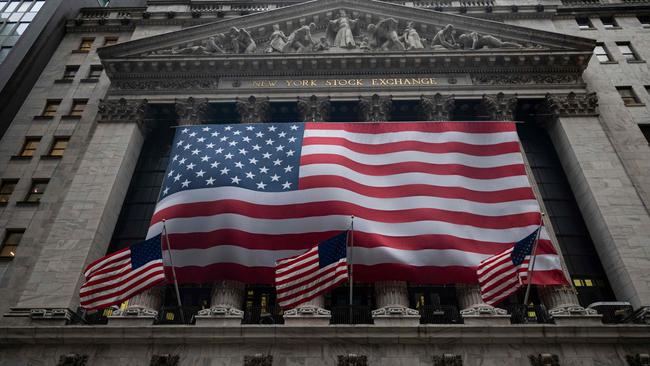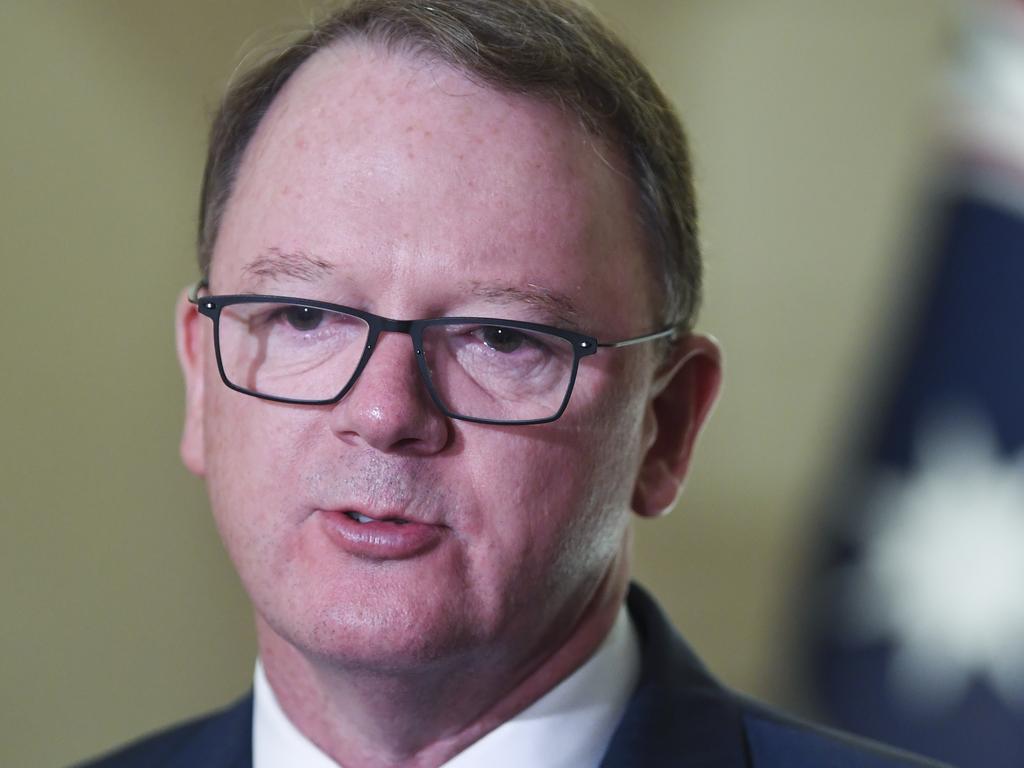Little guys drown in debt as big business weathers the corona storm with equity

And since markets and economists understand money better than germs, and since the money available from central banks is not just mountainous but infinite, they’re going with the optimism of a V-shaped recovery.
As the economy tips into its worst downturn since the 1930s, the Australian sharemarket just had its best month since 1988, for goodness sake.
And why not? Don’t fight the Fed, right? And at least this time the central banks are trying. Between 1930 and 1933, the Fed actually removed cash from the system, reducing America’s money supply by a third, turning the 1929 sharemarket crash into the Great Depression. So maybe a V it is this time. Or not. The short term is entirely up to the virus. Predicting the long-term economic and social costs of the 2020 pandemic recession is even more difficult, but one thing is for sure: there will definitely be some.
One of the things that distinguishes this downturn and bear market (if bear market is what it is — we seem to be in a weird new bull market right now) from all previous ones is the huge variations of impact.
The variations of impact during a credit-squeeze recession have to do only with debt: those with a lot of it blow up quickly, whether they’re large or small; those with less debt take longer but eventually topple; those with no debt but no cash flow can hunker down and last longer but expire without new capital; and those with no debt and cash flow win.
This time having no debt and cash flow definitely helps, but the quick detonations are those business that relied on people going somewhere, not staying home. The winners, to state the obvious, are those who help people stay home.
It’s not a credit squeeze, it’s a travel squeeze — not just long travel for holidays and business, but short travel to the theatre or the footy, or out for a meal. But have you noticed something? No big companies have gone broke yet — even Virgin Australia, the only large company to have gone into administration, apparently has a long queue of buyers.
But plenty of small ones have quietly expired, with an apologetic A4 note on the window, and no mention in the media.
If there is a theme in the great lockdown recession, it’s that the losers are mostly small and the winners are mostly big. That’s not 100 per cent true, but it’s a valid generalisation — of the sharemarket as well.
Big business is mostly doing OK, and a lot of small businesses are getting crushed; big investors are buying the market and driving it higher, small investors are out of it, confused and anxious.
Businesses in hospitality, travel and entertainment, including sport, clothing and other non-essential retail, tend to be mostly small and they have closed down, their owners on the dole and/or looking for a job.
Supermarkets are having another Christmas and large listed companies are raising huge amounts of capital — $15bn so far — mostly from large super funds rather than small investors, something that small firms simply can’t do, whether they’re listed or not.
The equity raisings are favouring large shareholders over small ones because ASIC and the ASX licensed that by increasing the limit on placements and letting it rip. The club of directors, investment bankers and fund managers have been only too happy to oblige.
The big winners in the US sharemarket have been Amazon, Apple, Microsoft, Alphabet and Netflix — the so-called FAANGs that were dominant already and now make up an even larger share of the S&P 500.
In times like this, small companies don’t have access to equity capital so they borrow: business loan data for March showed the biggest increase since 1988.
The ability of big listed companies to scoop up equity means their small competitors have no hope and will disappear in large numbers.
It’s not just the loss of so many businesses and their employees; with so much capital in so many unnoticeably small, heart-breaking lumps, it’s the quiet destruction of so many dreams.
Will the dreams return?
Maybe. There’s been a big increase in Google searches for “how to start a business”, along with “how to make banana bread”, so there’s some hope perhaps. But a Google search is just an idle thought, not the commitment of time and capital.
John Maynard Keynes once said the market can stay irrational longer than you can stay solvent, and to rework that aphorism: the battle against the coronavirus can keep going longer than a small business can stay solvent.
Speaking of irrational markets, the global MSCI index has rallied 26 per cent since March 23 because of buying by momentum-based hedge funds, computerised system traders and funds with mandated inflows, the last of which especially applies in Australia.
Some 700,000 people have apparently applied for the $10,000 early release from super, which is $7bn, but that’s less than a month’s worth of compulsory super deductions, which pours into the funds at the rate of $8bn a month, month after month, and has to go somewhere.
As a super fund chief investment officer asked me the other day: “What am I going to do with that cash? Put it into cash or bonds at less than 1 per cent? No way. It’s got to go into equities.”
As a result, the ASX 200 price-earnings ratio is back up to 16.2 times versus its long-term average of 14.4. The US market is even more stretched — the S&P 500 is on a PE of 21, based on consensus forward earnings, because of the outsized influence of booming, high-value tech stocks.
Why is it so? Partly because momentum and lower volatility is self-fulfilling, a perpetual motion machine, until it’s not, and partly because the big traders are more interested in central bank liquidity than the real economy, and understand money better than they understand germs.
Alan Kohler is the editor in chief of InvestSMART







History’s first deliberate lockdown recession — as opposed to the usual accidentally-on-purpose credit squeeze variety — is leaving the economic punditry floundering, weighing the mysteries of epidemiology against the flood of fiscal and monetary stimulus.